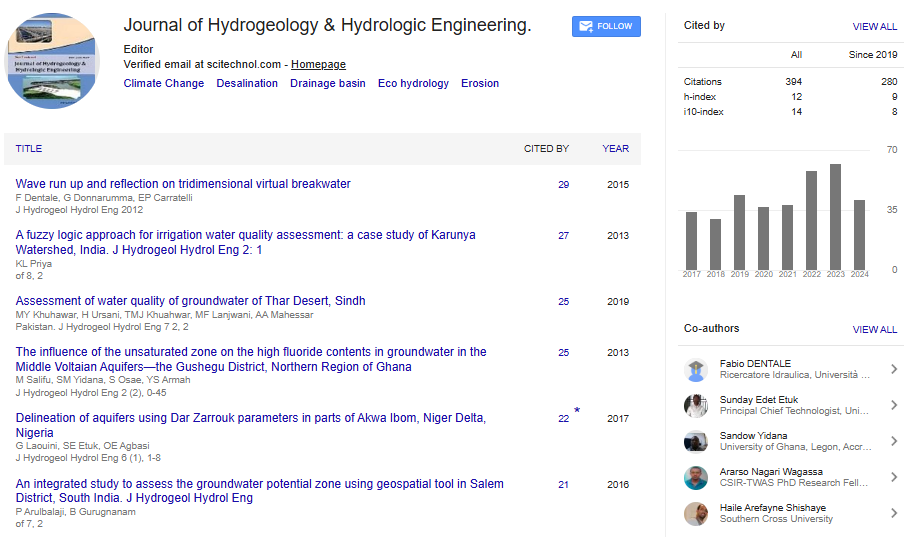Research Article, J Hydrogeol Hydrol Eng Vol: 5 Issue: 1
Modeling of Thermal Stratification and the Effect on Water Quality in Four Reservoirs in Tunisia
| Ines Nsiri1*, Jamila Tarhouni1 and Mitsuteru Irie2 | |
| 1National Institute of Agronomy, Tunis, Tunisia | |
| 2Alliance for Research on North Africa, University of Tsukuba, Ibaraki, Japan | |
| Corresponding author : Ines Nsiri Water Sciences and Technologies Laboratory, National Agronomic Institute of Tunisia. 43 Avenue Charles Nicolle, Mahrajène, 1082 Tunis, Tunisia Tel: +216 93 38 13 81; Fax: +216 71 79 93 91 E-mail: nsiriines@gmail.com |
|
| Received: November 27, 2015 Accepted: March 04, 2016 Published: March 12, 2016 | |
| Citation: Nsiri I, Tarhouni J, Irie M (2016) Modeling of Thermal Stratification and the Effect on Water Quality in Four Reservoirs in Tunisia. J Hydrogeol Hydrol Eng 5:1. doi:10.4172/2325-9647.1000132 |
Abstract
Tunisia is a North African country which is under the Mediterranean climate. This climate is characterized by a clear difference of precipitation between rainy season in winter and dry season in summer. The flood water in winter is stored for irrigation in dry seasons and for urban water supply throughout the year. The historical data analysis shows that reservoirs in Tunisia are characterized by a long retention time (0.5-1) year. This fact participates in the degradation of the quality of surface water resources due to the sedimentation process; it also induces the thermal stratification in the reservoirs. Dynamic numerical simulations of water flow, thermal stratification and sedimentation process constitute the basis of sustainable reservoir management. Indeed, the thermal stratification may have a big influence in the reservoir conditions and the quality of the stored water. In this study, we will begin by simulating the thermal stratification in four reservoirs in the northern side of Tunisia by applying a one dimensional numerical simulation model. Then we will investigate on the behavior of the water quality parameters towards the change of the temperature of the stored water in all the reservoirs. Finally, we will present the effect of a selective withdrawal on one of the four reservoirs.
 Spanish
Spanish  Chinese
Chinese  Russian
Russian  German
German  French
French  Japanese
Japanese  Portuguese
Portuguese  Hindi
Hindi 
